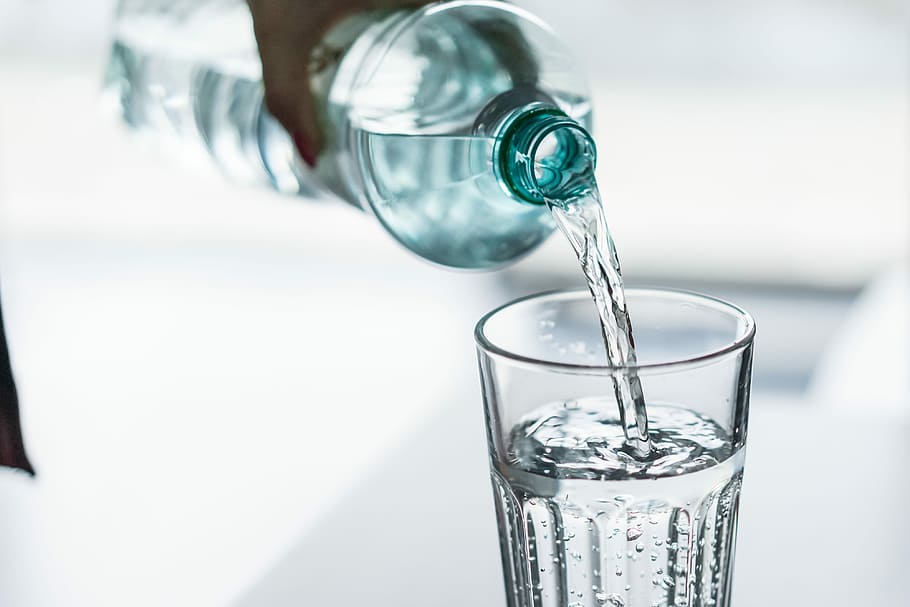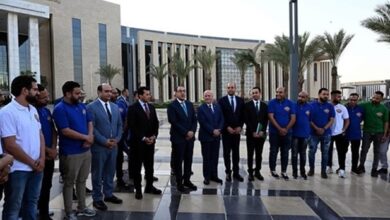
Thirst is a sign of dehydration. Whether or not this information comes as a surprise, the truth is, if you feel thirsty, you are already dehydrated. Basically that means that, in order to avoid dehydration, you need to avoid reaching the spot where you feel thirsty.
Of course, during the long fasting days of Ramadan, drinking water is not an option. Thirst has no doubt become your usual companion through these hot summer days of Ramadan. But there are a few little secrets and tricks that can help you avoid dehydration.
Given that the best way to avoid dehydration is by drinking enough fluids, these secrets are not going to replace your need to drink water. They will, however, help you lessen your need for water between the last drink of sohour and that first sip at iftar.
Secret No. 1: Drink water.
Prepare for your day of fasting by drinking enough water throughout the night. Keep a bottle of water close by during the evening, and try to drink a cup or two at least every hour.
An easy way to remember to drink water is to associate it with a common, daily act. Multiple health websites suggest taking a drink whenever your phone rings. We suggest drinking water when commercials come on during your favorite TV show.
Try to drink three liters of water a day, but remember that you need to drink more water when you have sugary drinks (which is the case with a lot of typical Ramadan drinks) and caffeine.
Secret No. 2: Fashion matters.
Be careful when picking your daytime clothes during Ramadan. The color of your shirt, the fabric of your pants, and the layers of clothes all play an important role in keeping your body temperature as low as possible. If you work indoors, pick a light-colored shirt; if most of your day is spent outside, a darker color will help protect you from the effects of the sun. Black, however, is not advisable, as it tends to attract the heat and lock it close to your body.
Some people believe that a cotton undershirt can help protect your body from the sun. The truth is, an undershirt, especially with the humidity in Cairo, can increase you risk of dehydration. The undershirt will absorb sweat, slowly becoming a wet, hot piece of cotton fabric that will increase your body temperature, especially if you are wearing an additional second layer of clothing. A loose cotton t-shirt, which allows your sweat to evaporate, is a better idea.
Secret No. 3: Cold showers.
Cold showers help in many ways to rehydrate you during the month of Ramadan. After couple of days of fasting, thirst becomes a normal feeling, so try to notice other, obvious signs of dehydration: cracked lips, flushed skin, fatigue, increased body temperature, and increased breathing and pulse rate, followed by dizziness, increased weakness, and labored breathing.
If you feel one or more of these symptoms, you should try to lower your body temperature in any way possible. Spend 5-10 minutes with the base of your head under direct cool water. (No ice water, please. Let’s try to keep you from freezing, shall we?)
Taking a cold shower in a public bathroom can be considered rude, so if you are in an office, wet a small towel with ice water and apply the towel to your forehead, the area around your ears, the base of your neck, the upper back, and the chest.
Secret No. 4: Plan your menu.
What you eat plays a huge part in dehydrating or hydrating your body. Food that contains a lot of sugar (such as Ramadan sweets) can really dehydrate you, while fruit is perfect for providing extra water. So, instead of ending your iftar feast with piles of sweets, eat a couple of slices of watermelon or an orange. Green salads are another good source of extra water, so include them in your Ramadan diet.
Secret No. 5: Working out.
Because you lose a lot of water when you sweat, working out can undoubtedly cause dehydration. But exercising also helps your body dispose of toxins and other harmful elements that might cause dehydration later on. Pick a good time for exercise (two to three hours after iftar is advisable) and attend a cardio class, but try to counterbalance the amount of water lost by drinking water before you go to sleep.




